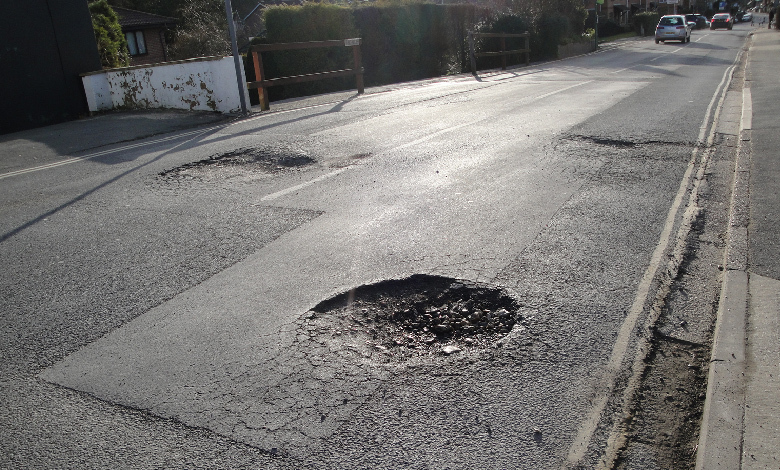Pothole plague: Climate change taking a toll on roads – but intriguing innovations have emerged

The main trigger behind dire weather events, climate change is also behind another deepening problem. It has created a pothole plague across the globe. For instance, 2023 marked nearly 630,000 reports of potholes in the UK, according to Round Our Way.
Limited road maintenance budgets and ageing infrastructure play a notable role in the crisis. But there is another culprit behind the proliferation of potholes – extreme climate change-driven events are weakening roads, adding to the chaos.
Pothole plague: Exploring the contributing factors
Hassan Davani from San Diego State University said: “Excessive heat can ultimately cause buckling of the roads, where additional thermal stress to the pavement materials can lead to cracks and potholes,” according to BBC.
The expert also highlighted another reason behind the pothole plague, noting that humanity is experiencing more extreme flooding events lately, which causes a higher velocity of stream flow over the roads, resulting in more severe erosion of the pavement.
There is another contributing factor, too. It is the increased number of freeze and thaw cycles taking place every year as the climate crisis worsens, which is also undermining road conditions. The year 2023 has already been confirmed as the hottest since records began.
It’s no doubt that roads globally are navigating a challenging period. But several innovative approaches are also being developed that aim to more effectively and cost-efficiently repair potholes – or prevent them from happening in the first place.
Nonetheless, it is important to emphasise here that innovations take time to be implemented. Many still need to go through testing before they can be adopted. It means larger use of such approaches is still a few years down the road.
Robots, solid carbon, self-healing pavement: Details here
The list of emerging intriguing innovations certainly includes the use of artificial intelligence and robots. In the UK, a start-up named Robotiz3d has created an autonomous robot – ARRES PREVENT – that relies on AI to find cracks and potholes in the road and repair them.
Robots, however, are just one of the innovative approaches being developed. Another approach that has emerged recently involves using solid carbon derived from the carbon capture process to strengthen asphalt mixes and minimise potholes.
US-based climate tech start-up Modern Hydrogen has focused its efforts on this innovation, aiming to create a longer-lasting form of asphalt. The innovation is known to increase stiffness by 250%, making roads more durable and asphalt is able to handle higher temperatures.
Meanwhile, self-healing pavement, sometimes referred to as “smart asphalt”, is also gaining considerable attention. One type of self-healing pavement includes steel fibres that can release heat into mortar and melt it briefly, allowing the road to repair potholes on its own.
Read More: Let’s explore reasons behind increasing construction in flood-prone areas



